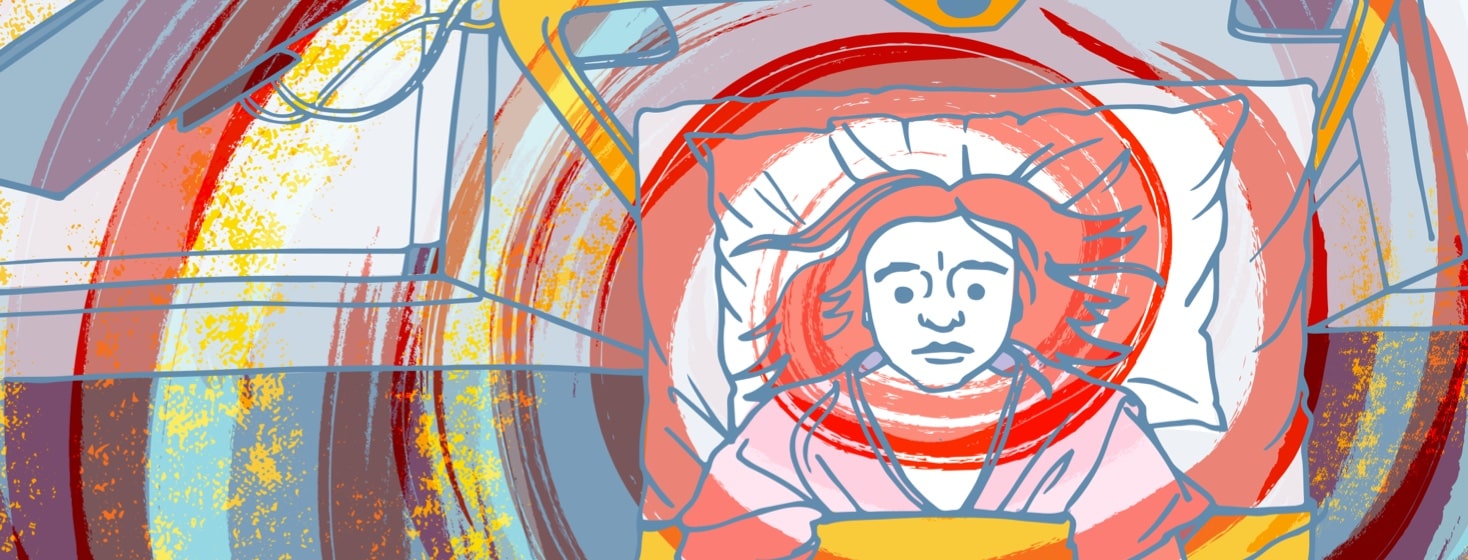Your Anxiety Disorder's Relationship With Insomnia
It is common to have the occasional bad night of sleep. But insomnia is far more challenging than that. Insomnia means that you have problems sleeping at least 3 times a week for a minimum of 3 months. These problems continue even when you have plenty of opportunity to sleep. Even under ideal conditions, insomnia can cause suffering.1,2
Insomnia affects how you feel during the day, too. Daytime symptoms can include:1,2
- Feeling sleepy or tired during the day
- Trouble focusing
- Trouble remembering things
- Making more mistakes than usual
- Getting into accidents
- Worrying about being able to sleep at night
Do people with anxiety have insomnia?
Insomnia is very common in people with anxiety disorders. In fact, insomnia is even part of the definition of certain anxiety disorders, like generalized anxiety disorder (GAD) and post-traumatic stress disorder (PTSD). Three out of 4 people with GAD have insomnia disorder. Insomnia is also common in people with panic disorder.3,4
Overall, insomnia is likely the most common and troubling secondary symptom for all psychiatric disorders. These disorders include social phobia and obsessive-compulsive disorder (OCD). The link was especially strong in people with OCD-related unwanted thoughts. These are disturbing thoughts about subjects such as sex, religion, or harm. People with severe OCD had high levels of insomnia as well.1,4,5
Can insomnia lead to other mental health issues?
Having insomnia increases the risk for developing other mental health disorders. People with insomnia are at greater risk for:1
- Anxiety disorders
- PTSD
- Bipolar disorder
- Major depressive disorder (MDD)
Insomnia can play a part in whether a traumatic event brings out symptoms of PTSD. It can impact how long symptoms of PTSD continue. Getting good quality sleep might even protect against the anxiety and difficulty regulating emotions common in veterans with PTSD.1
Start a Forum
Insomnia and stress
Similarly, people who experience insomnia due to stress are more likely to develop a mood disorder like depression. Insomnia aggravates mood issues, leading to worse outcomes. Inability to sleep also can interfere with treatment and makes relapses more likely.1
Sleep helps people regulate their emotions and stress response. And it reduces inflammation. Insomnia disturbs these important functions of sleep. So, insomnia is considered one of the causes of neuropsychiatric disorders, including anxiety. Insomnia also may lead to neurodegenerative conditions such as Alzheimer's disease and Parkinson's disease.4,6
People who have insomnia may get stuck in a vicious cycle. They fear that they will not fall asleep or stay asleep. These concerns lead to more stress, which can worsen symptoms of anxiety, including:4
- More worry
- Negative thinking
- Disruptive behaviors
What causes someone to develop insomnia?
There are several things that can make someone vulnerable to developing insomnia. These include:1,7
- Genetic differences
- Childhood trauma
- Major life events
- Brain structure and function
These factors affect brain circuits that regulate emotion and arousal from deep sleep. If the arousal continues, it can lead to hyperarousal, which makes restful sleep that much harder. Along with insomnia, symptoms of hyperarousal include:1,7
- Irritability
- Trouble focusing
- Angry outbursts
Hyperarousal leads to less restful sleep, which increases the risk of developing other mental health disorders.1,7
What can you do if you have an anxiety disorder and insomnia?
If your symptoms of anxiety or insomnia are causing problems, check with your doctor. Your doctor will want to make sure that there are no underlying health issues making things worse. Then, they may suggest 1 or more treatments.
Medicines
A change in medicine might be in order. There are drugs specifically designed for insomnia that might be helpful. And certain antidepressants, including selective serotonin reuptake inhibitors (SSRIs), can help with anxiety-related insomnia.8
Benzodiazepines are another class of drugs that doctors may prescribe for these conditions. These drugs train your brain to release a neurotransmitter called gamma-aminobutyric acid (GABA). GABA makes your nervous system less active. This can lead to less anxiety as well as sleepiness.8
Therapy and lifestyle changes
Cognitive behavioral therapy (CBT), a type of talk therapy, is another possible treatment. CBT works by helping people with anxiety learn different ways of thinking, reacting, and behaving. It can help people perceive and react to their symptoms in a more positive way.9
Lifestyle changes that can help improve sleep are called sleep hygiene practices. These behaviors can include:10
- Getting up and going to bed at the same time every day, including weekends
- Getting daily exercise
- Keeping naps short
- Avoiding alcohol and caffeine
- Quitting smoking
- Avoiding distractions in your bedroom like a TV or laptop
- Taking a bath or listening to calming music before bedtime
Another key part of good sleep hygiene is to get out of bed if you do not fall asleep after 20 minutes. Get up and do a relaxing activity to help ease you back into sleep. Do the same if you wake in the middle of the night and cannot get back to sleep within 20 minutes.10

Join the conversation